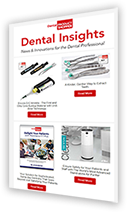“I’ve noticed a great shift in patients’ dental IQs as well as their interest in their overall health,” says Maryann Beltz, RDH, who’s been a dental hygienist in a periodontal office for 28 years. “This increase in awareness has made the treatment phase of dental hygiene more productive.”
In Beltz’s practice, routine maintenance includes an oral exam, periodontal probing, scaling and root planing, and polishing. “If a pocket exceeds 5 mm and displays inflammation and bleeding, I recommend ARESTIN,” says Beltz. ARESTIN, a concentrated, locally applied antibiotic that can be used in conjunction with SRP, targets bacteria and remains active in the pocket for up to 9 months.
If SRP is the only treatment, Beltz says she sees improvement only if the patient has pristine hygiene. “If the patient is compliant, this may reduce the advancement in periodontitis,” says Beltz. “However, each patient has a different medical history, different oral flora, and a different home care routine, so each must be evaluated individually.” With ARESTIN, Beltz says she looks for infection resolution at the site. “I’m looking for resolved inflammation and a reduction in bleeding, but I don’t expect pocket reduction. If pocket reduction exists, it’s usually due to the decrease in inflammation.”
Beltz says she finds that most patients today are interested in their health and take their oral health seriously. “I spend time with my patients explaining the results of my exam, and I typically relate their oral health to their overall health. I use a mirror and X-rays to help explain the situation and how it can be improved.”
Beltz believes that the increase in patients’ dental IQs “makes them more willing to improve their oral hygiene in an attempt to reduce their periodontal issues as well as pursue the proper treatments to decrease periodontal disease.”



